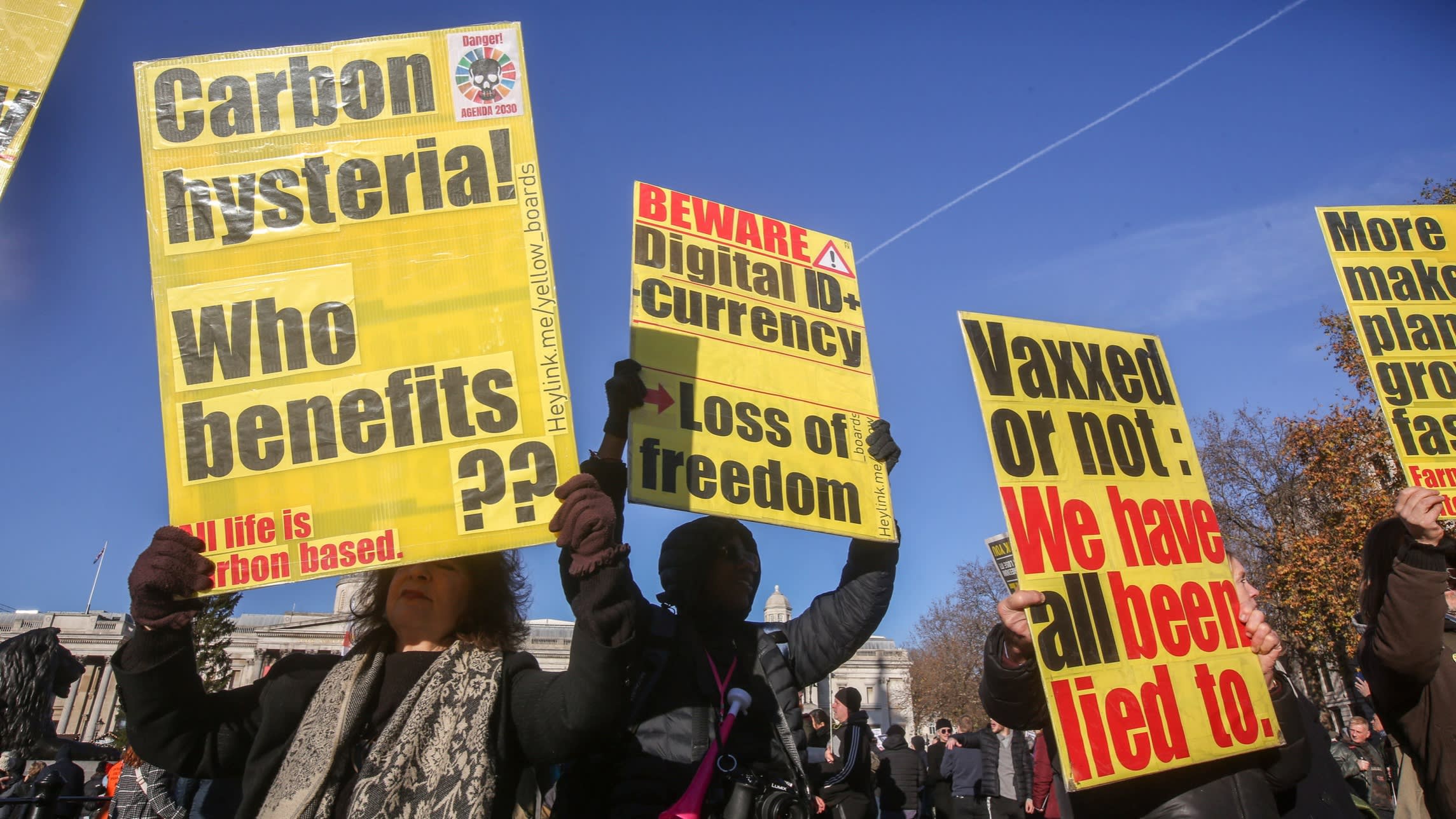The ’15-minute city’ backlash is part of the great climate change …

Oxford seems a rather fitting place for an insurgency against the elite. The city of dreaming spires is the alma mater of many who stalk the halls of power or jet off to Davos, after all.
Last month, protesters against a new low-traffic neighbourhood system took aim at “15-minute cities” there. They argued that the proposals to reduce reliance on cars are a Trojan horse for controlling citizens’ movement through QR codes and other forms of digital surveillance.
On Facebook, a group founded a few weeks ago to protest against 15-minute cities has more than 20,000 users who have posted empty claims that the ideas are communist or Nazi in nature, or make comparisons to the dystopian fiction of The Hunger Games.
The actual idea of a 15-minute city is fundamentally mundane — a form of urban planning that recognises that for journeys that take much longer than a quarter of an hour we tend to use vehicles, and so aims to maximise the density of walkable amenities.
Opponents aren’t buying that — they think people will be contained in 15-minute radiuses that will be marshalled by authoritarian forces through facial recognition and other digital monitoring tools.
You might think it a bit odd that an urban planning idea could elicit such violent feeling — even set against the weirder excesses of the “culture wars”. (The US talk-show host Tucker Carlson once claimed a redesign of the M&M sweets characters that made them look less sexy was done to pander to liberals.)
In reality, it is simply the latest chapter of a kind of “everything conspiracy” that is being promoted by the “freedom movement”, a broad coalition that emerged out of anti-lockdown protests but has since embraced other areas, such as anti-vax, climate-scepticism and QAnon.
“It’s a very strange mix these days,” says Joe Ondrak, head of investigations at the anti-disinformation group Logically. “One thing that unites a lot of them [though] is the conspiratorial belief that the Great Reset is something it isn’t.”
The Great Reset is an economic recovery plan announced by the World Economic Forum back in June 2020, with a stated goal of sustainable development after the coronavirus pandemic.
But it has become the germ for a wide-ranging super-conspiracy, with takes ranging from “WEF founder Klaus Schwab has explicitly called for the extermination of billions”; to “egg shortages are a plot to weaken society”.
“It’s helpful to think of the anti-Great Reset movement as a coherent conspiracy movement, which began with Covid denial and has branched out to climate denial,” says Annie Kelly, a digital extremism researcher and UK correspondent for the QAnon Anonymous Podcast, who reported at the Oxford protest.
The spread of these ideas has been boosted by recent real-world policy proposals. The timing of Tony Blair and William Hague’s joint call to introduce digital IDs last month seems particularly unfortunate.
But even policies normally considered harmless have been dragged into the conspiracy milieu, says Ondrak — hence the backlash over 15-minute cities. “Ideas around clean-air zones and other cities beyond London having ultra-low emission zones have been incorporated into beliefs that climate change is a hoax and traffic mitigation measures are about restricting personal freedoms,” he says.
Electric vehicles have also become part of the “everything conspiracy”, transformed monstrously into vehicles of oppression (although Tesla seems to have dodged this tarnishing, says Ondrak — perhaps a reflection of Elon Musk’s own idiosyncratic approach to conspiracy theories).
While it’s tempting to write off the 15-minute-city conspiracy theories as little more than a marketing ploy by those who hawk their wares to outraged online communities — and it’s hard to treat as serious thinkers people who believe that a car journey is a Galtian exercise in free will — Kelly says it’s worth remembering that the development of the Great Reset conspiracy has serious consequences. It represents a growing antipathy towards any policy on climate change, no matter how small.
And it may yet have political implications. According to Kelly, members of the Oxford protest exhorted crowds to try to secure seats on their local council — a tactic that has seen some QAnon believers secure office in the US.
There are ways to minimise the spread of the conspiracy theory. Both Kelly and Ondrak suggest policymakers should stay away from vague but nice-sounding slogans such as “build back better”, which inevitably become a part of the conspiratorial vernacular.
But this cannot prevent the fact that even mild ideas around urban planning have online been branded as evidence of a coup d’état.
“The scale of the climate emergency . . . needs dramatic solutions that might quite drastically change what our future looks like,” Kelly says. “It makes me nervous that before any of those drastic changes have even happened or been proposed, there is this level of resistance.”
Siddharth Venkataramakrishnan is the FT’s banking and fintech correspondent
Find out about our latest stories first — follow @FTProperty on Twitter or @ft_houseandhome on Instagram
This article has been archived for your research. The original version from Financial Times can be found here.


